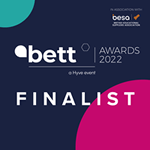It includes:
- Student Learning Record (A3 version in word)
- Student Learning Record (PDF version)
- Student Learning Record (PowerPoint version)
- Student Learning Record (Exemplars)
- Set of student activities and workshops with answers
- Answers to the exam questions from the back of the SLR
- Teacher Marking Checklist
- Year 13 Recap Lesson
This topic covers:
H046
- 1.3.1 a-b Databases
H446
- 1.3.2 a-f Databases
Specific knowledge required for AS and A Level:
- Candidates need to understand what is meant by a database.
- Candidates should be familiar with basic database terminology such as fields, records and tables.
- Candidates should know the difference between a flat file and a relational database, and be able to explain the benefits and limitations of each approach.
- Candidates should have experience of setting up and using both a flat file, and relational database.
- Candidates should know what is meant by a primary key, foreign key and secondary key and how each are used in a database.
- Candidates should be able produce and follow Entity Relationship (ER) diagrams which include 1:1, 1:M and M:M relationships.
- Candidates should be able to identify how tables should be linked.
- Candidates need to have an awareness of a range of methods for capturing data (such as forms, OCR, OMR and sensors) selecting data (such as Query By Example and SQL), managing data (such as changing data by manipulating it – e.g. arithmetic functions, adding, editing, deleting the data) and exchanging data (with common formats such as CSV, JSON and XML). Candidates won’t be specifically asked about any one of these methods but may be asked to discuss/justify suitable methods as part of a more open question.
Specific knowledge required for A Level ONLY:
- Candidates need to have an understanding of the need to interrogate data within a database.
- Candidates should understand the purpose of indexing in a database and the benefits of using indexing to optimise the searching for data.
- Candidates need to have experience of a range of methods for capturing data (such as forms – what do they collect, what do they look like – data mining, where does the data come from, how is it collected and analysed), selecting data (such as how to produce QBEs – adding fields, tables, criteria, sorting – selecting through Boolean expressions – AND, OR, NOT), managing data (such as changing data by manipulating it – e.g. arithmetic functions – , adding, editing, deleting the data) and exchanging data (such as methods of transferring data – electronic i.e. memory stick, e-mail, and non-electronic e.g. paper based – appropriate formats for the transfer of data and communication mediums to transfer data – such as the structure, is it in a table or a list).(such as forms, data mining), selecting data (such as producing QBEs, selecting through Boolean expressions), managing data (such as manipulation, adding, editing, deleting) and exchanging data (such as methods of transferring data, appropriate formats for the transfer of data and communication mediums to transfer data).
- Candidates should have experience of using SQL to edit and modify data in a database. They should understand the need for SQL as a standard language. Candidates should be able write and follow scripts using the SQL commands listed in appendix 5d.
- Candidates need to understand what is meant by referential integrity, and why this is desirable in a database.
- Candidates should understand what is meant by transaction processing, and scenarios where transaction processing takes place.
- Candidates should understand the problems that arise from transaction processing, and how these can be overcome. Candidates should understand the ACID rules for transaction processing, and why databases should be built to these standards.
- Candidates should understand how record locking prevents the overriding of data, and understand how record locking takes place.






